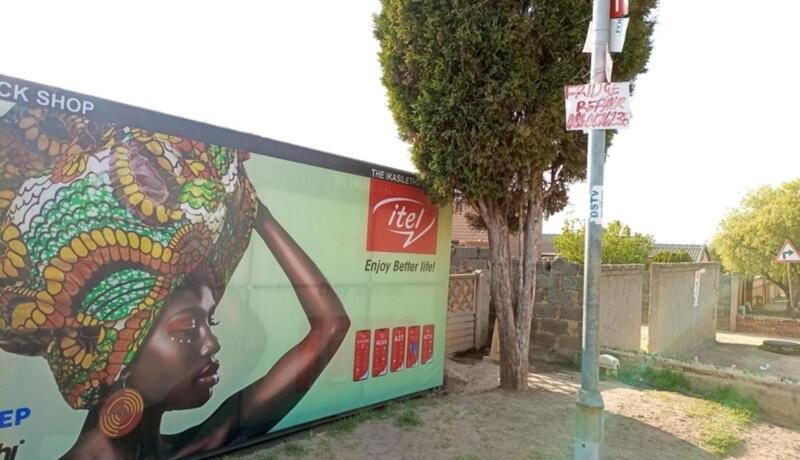Lucas Molepo can still remember the first time he heard the word “entrepreneurship”. “I was in grade 2 and I never forgot what it meant because even back then, I just felt like it defined me.”
That impulse to start and grow his own business never left the 29-year-old Tembisa resident. While he may not have known it at the time, it would allow him to rise above the challenges that would confront him and ultimately enable him to fulfil his destiny as an entrepreneur.
Molepo recently took ownership of a repurposed shipping container, one of 10 donated by global mobile brand itel in various townships around Gauteng as part of its programme to empower township traders in South Africa.
As part of their itel my story campaign, which celebrated Heritage month by allowing ordinary South Africans to tell their stories of triumph over adversity, part of the response was providing opportunities of empowerment through entrepreneurship.
“We believe that in order for the country to reduce its record unemployment rate of 34.4%, small business owners need to be afforded support through the provision of proper infrastructure and skills,” says Zikona Captain, PR Manager of itel SA.
The containers give entrepreneurs a solid and visible base of operations for their businesses, with each customised to the needs of the specific trade. Each is fully equipped with electricity, a steady water supply and plumbing.
Today, Molepo runs a sneaker cleaning and repair business in Tembisa, though his operation also extends to handbags, leather belts and other accessories. He is becoming a popular face in the township since his service offering also includes home deliveries.
Like thousands of young South Africans, he has struggled to find employment in his field of study.
“I am an accounting graduate, but I had been job-hunting without a breakthrough. Circumstances led me to running my own business, although it was something that I had always aspired to from a young age.
But there are many struggles in entrepreneurship, particularly in recent times [with Covid-19], not being able to operate in bad weather, not earning money when you get sick, it has been hard. Another challenge is branding and not having a clear marketing strategy and with limited funding.”
Molepo’s biggest struggle was not having a permanent structure.
“The container has been really, really awesome. The weather hasn’t been favourable lately, but we have been able to work.
Also, I am now able to think of other ideas and things that can help to grow the business. I am grateful for the structure, this is by far the biggest blessing this year.”
Molepo draws inspiration from the late Apple founder Steve Jobs and basketball legend Michael Jordan, admiring their creativity, hard work and tenacity, something he calls their “champion mentality”.
It is something he aims to bring to his own business, instilling this ethos in his employees.
“As young people, we need to monetise our skills and talents so that we depend less on external factors,” concludes Molepe.
Another container beneficiary, 39-year-old Ivory Park mother-of-three Reneilwe Cynthia Moabelo, only recently started selling groceries to the local community, and as such, the donation could not have come at a more opportune time.
“I decided to be a business owner because I can set my own deadlines. I love that I can pursue my passion and create something from scratch,” she says.
Cynthia’s journey has not been without challenge.
“Lack of funding is a challenge which can be a major setback to your business, and so is attracting customers. I’m starting from scratch,” says Moabelo.
Her new container certainly will remove some of the stress as she makes her way in the township economy.
Not only will it give her a base from which to work and store her goods, but it will ensure her business has a chance at success.
“I feel like people can now come to my store and see my passion. I’ll make sure that I put more effort [into] my work. My progress has shown that you can always pursue your dreams, which is important for younger South Africans to understand,” she says.
A third beneficiary, Esther Tshabalala, 51, a single mother of four, has relied heavily on her two sons to buy her food, but is now preparing to stand on her own two feet in her new container business.
“I was a businesswoman before, and now I have the opportunity to pursue my passion once again. I love the fact that I will not be owing anyone and I will be on my own,” she says.
Zikona Captain believes the containers can help entrepreneurs to start businesses that will empower them, their families and communities.
“The establishment of these businesses will allow the rand to recirculate in the township. We believe that in a society with high unemployment, it is vital that entrepreneurship is allowed to flourish, and we are thrilled to be able to assist in fostering this culture, either through investments such as these or democratising technology by making it accessible to all through our affordable devices,” she says.







